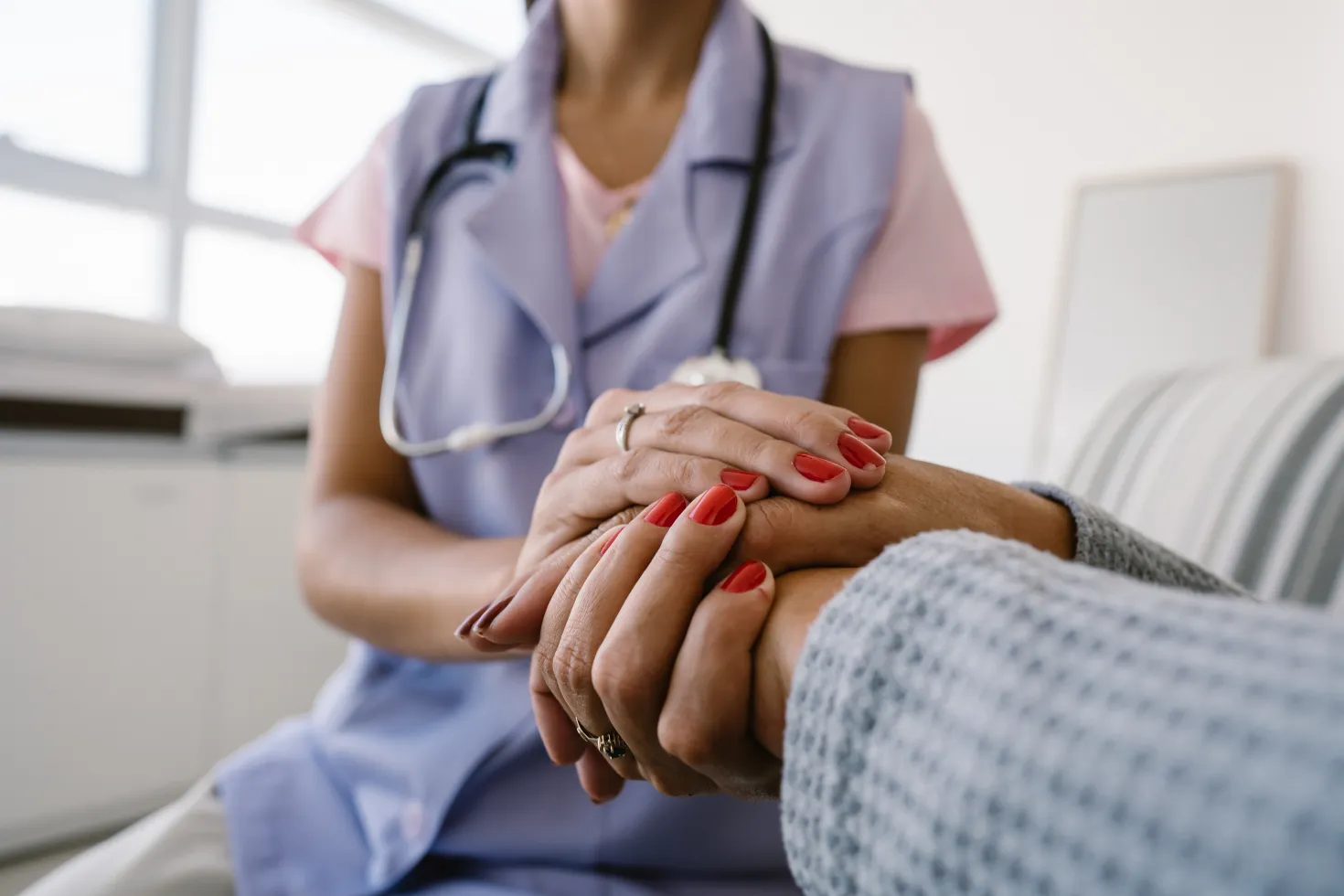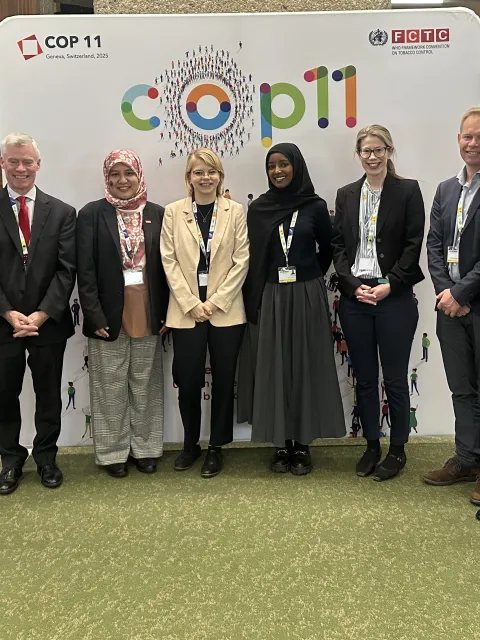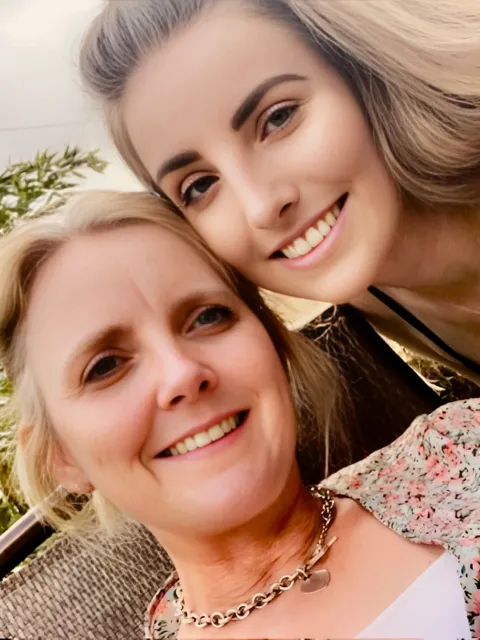UICC members in Chile and Brazil bridge cancer care gaps with innovation and resolve
UICC member organisations in Brazil and Chile are implementing tech-driven, collaborative strategies to enhance timely and equitable cancer care across Latin America.

HIGHLIGHTS
- FEMAMA in Brazil is leveraging AI tools and WhatsApp chatbots to prioritise genetic testing and speed up cancer referrals, while influencing national policy and patient rights.
- Instituto del Cancer RedSalud in Chile uses virtual tumour boards and proactive patient outreach to decentralise expertise and improve early cancer detection rates.
- Fundación Foro Nacional del Cáncer, led by former Chilean senator Carolina Goic, focuses on implementing cancer legislation through regional cooperation and dialogue with health ministries.
- All three organisations exemplify how grassroots innovation and collaboration are reshaping cancer care in alignment with global health frameworks.
As part of its July series profiling member organisations, UICC is highlighting initiatives in Chile and Brazil where members are embracing innovation and collaboration to tackle long-standing gaps in cancer care. In these countries, three UICC member organisations are demonstrating how civil society can contribute to more timely and equitable cancer services.
For FEMAMA, a Brazilian civil society organisation, community needs and a systemic transformation of the health system to address those needs go hand-in-hand. Dedicated to improving breast cancer outcomes, FEMAMA works to expand access to timely diagnosis and treatment, influence public health policy, and raise awareness through advocacy and education campaigns.
One current area of focus is improving access to genetic counselling and testing, a growing need in breast cancer management as more personalised treatments become available. Geneticists are crucial in oncology for evaluating hereditary cancer risk and helping guide decisions on screening, preventive measures or targeted therapies. Yet, access to these professionals remains scarce in many areas.
“In Brazil, it can take up to a year to get an appointment with a geneticist, and we believe it’s not necessary for a specialist to conduct the first triage,” said Maira Caleffi, MD, PhD, a breast cancer specialist and president of FEMAMA. “We’re piloting an AI-based system that uses WhatsApp to guide patients through a questionnaire. Based on their answers, the tool can help determine whether a referral to a geneticist is actually needed.”
Dr Caleffi, who also sits on the Board of Directors of UICC described how FEMAMA supports digital triage tools and streamlined referrals. In Porto Alegre, for instance, a protocol-based navigation system now enables faster specialist appointments – down to one week from two months . “It’s about getting the right patient to the right place, faster," she said. "We helped develop the model and it’s working.”
Her advocacy extends beyond the clinic. “We are teaching patients what genetic testing means and urging the government to fund it,” she added, noting FEMAMA’s efforts to embed precision medicine into national policy.
FEMAMA's partnerships, including with private sector actors such as Hospital Moinhos de Vento, WeConecta, and AstraZeneca, aim to expand access while reinforcing the role of civil society as a policy driver. In addition, FEMAMA continues to push for the implementation of Brazil’s national cancer policies and patient rights legislation, especially concerning guaranteed timelines for treatment.
In Chile, Dr Claudia Gamargo, Head of Oncology at Instituto del Cancer RedSalud, a national private healthcare network and another UICC member, also highlighted the importance of technology and multidisciplinary collaboration in reaching more vulnerable populations, especially in a country as geographically challenging as Chile.
“At Instituto del Cáncer RedSalud we have established virtual oncology committees that bring together our team, nutritionists, psychologists and surgeons from different parts of Chile to discuss patient cases,” said Dr Garmago. “They are our version of tumour boards – multidisciplinary meetings where specialists review patient cases and decide on the best course of treatment – and it’s transformed how we make decisions.”
Chile’s long, narrow geography and lack of specialists often force patients to travel hundreds of kilometres for care. "The virtual boards have helped decentralise expertise," said Dr Gamargo. "Patients now receive input from specialists without needing to leave their region."
Instituto del Cancer RedSalud has also developed internal strategies to reduce delays or missed appointments, and improve early detection. “We use our patient database to identify individuals within our network who are overdue for screening and call them directly,” said Dr Garmago. “It’s a simple strategy, but it's closing gaps.”
This direct outreach model has shown success in boosting early detection rates for breast and prostate cancers. Instituto del Cancer RedSalud is also advocating for national policy change and greater integration of early screening into Chile's still-developing National Cancer Control Plan.
The organisation also collaborates with public sector actors through national forums and initiatives. It works closely with both public and private stakeholders to ensure its efforts align with broader system goals, while responding swiftly to patient needs and reducing waiting times.
Former Chilean Senator Carolina Goic, now Executive Director of Fundación Foro Nacional del Cáncer, another UICC member, brings a legislative perspective to the table. She helped spearhead Chile’s 2020 National Cancer Law after years of coalition-building. “The proposal came from civil society,” she said. “We brought together the Ministry of Health, academics, patient groups and journalists – all working on cancer.”
Goic, who has experienced cancer herself, believes effective public policy is built on respect and collaboration. "Too often, politicians use patient organisations for their own agendas," she said. "They invite them to the table for appearances, not always for genuine dialogue. But when each party recognises the other’s strengths and legitimacy, then something truly constructive happens. Each side contributes what it does best, and the result is more than the sum of its parts."
Her experience offers insights for both advocates and lawmakers. “Passing a law is only the beginning,” she said. “Implementation requires persistence, honesty about what’s achievable, and trust.”
Fundación Foro Nacional del Cáncer now supports regional collaboration across Latin America, helping cancer groups from different countries align their goals. “We started an initiative at the regional level with five women leaders in cancer, from different backgrounds, called ILACC, Iniciativa Latinoamericana para el Control del Cáncer,” said Goic. “With this alliance, we don’t need to lead, we need to work together.”
ILACC is currently working to support the practical implementation of cancer policies across the region by sharing good practices, providing technical assistance, and fostering peer support among national civil society coalitions. This includes facilitating dialogue between organisations and ministries of health and encouraging alignment with WHO frameworks such as the Global Breast Cancer Initiative.
This ethos – shared across FEMAMA, Instituto del Cáncer RedSalud, and Fundación Foro Nacional del Cáncer – underscores the strength of UICC’s global community: local action, backed by solidarity and innovation, is helping address longstanding challenges in cancer care.
Last update
Friday 18 July 2025
